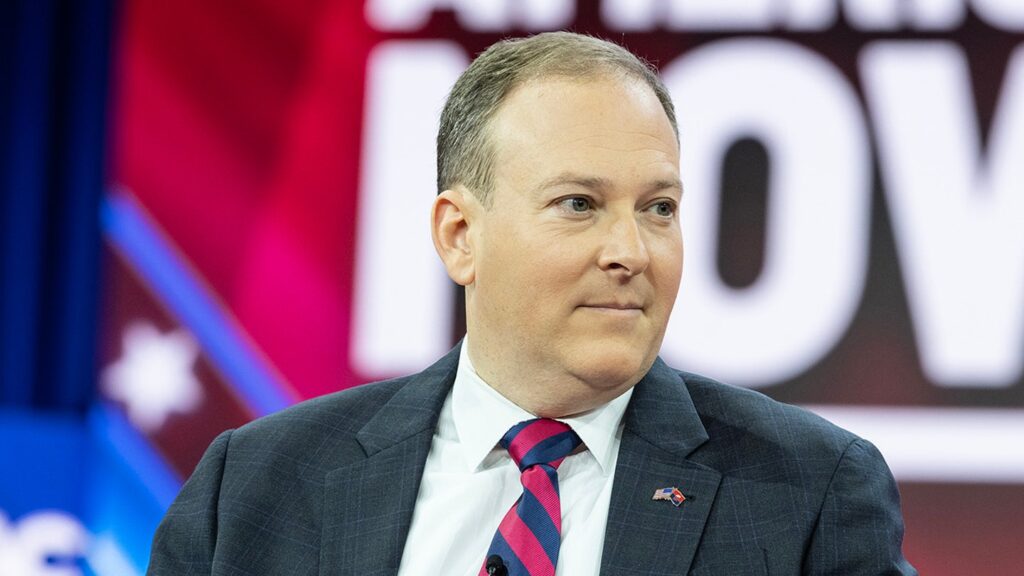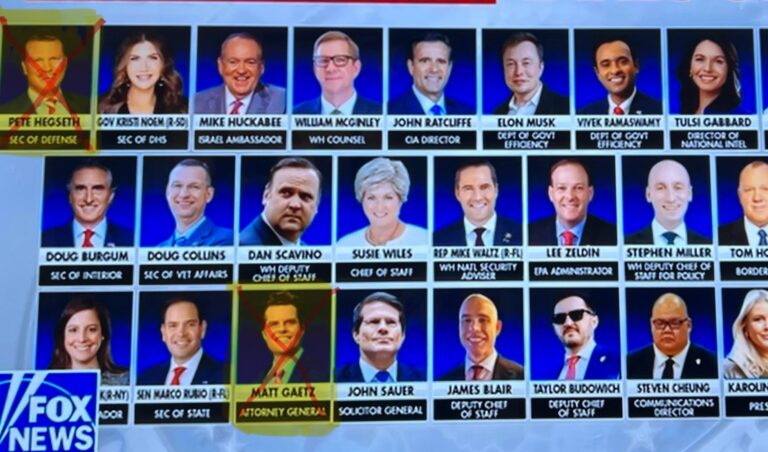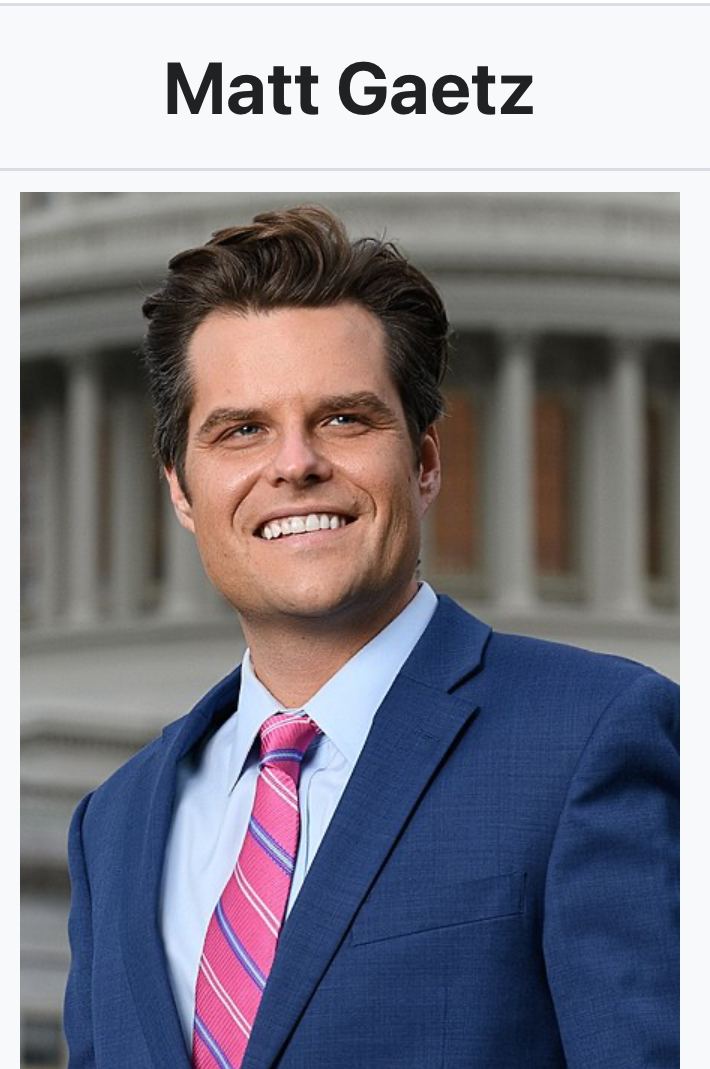
With former Congressman Lee Zeldin tapped by Donald Trump to lead the Environmental Protection Agency (EPA), there’s strong interest—and debate—around how his conservative approach will shape environmental policy. Known for his alignment with the GOP’s deregulatory agenda, Zeldin brings a blend of experience in Congress and a record of prioritizing economic growth over stringent environmental regulations. Here’s what we can expect from his tenure at the EPA.
Focus on Regulatory Reform
Zeldin has been vocal about reducing what he describes as “overbearing” regulations that hinder business growth and job creation. In his time as a legislator, he supported initiatives to roll back emission standards on industries like coal, arguing that such measures allow businesses to thrive without excessive government intervention. As head of the EPA, Zeldin may push for streamlined processes and remove barriers that he believes burden the manufacturing and energy sectors.
Expansion of Domestic Energy Production
A consistent supporter of U.S. energy independence, Zeldin has backed policies that expand domestic energy production, including traditional fossil fuels. He has previously voted in favor of lifting restrictions on practices like fracking and supported pipelines and other infrastructure for oil and gas transport. Under his leadership, the EPA may adopt a more favorable stance toward these industries, with policies that support fossil fuel production while deemphasizing the transition to renewables.
Adjustments to Climate Change Policy
While Zeldin acknowledges environmental challenges, he’s skeptical of ambitious climate legislation like the Green New Deal, which he views as economically unrealistic. As head of the EPA, he may advocate for a more conservative approach to climate issues, potentially relaxing some of the EPA’s existing emissions standards and focusing on balanced, incremental solutions. This could shift the EPA’s climate efforts away from strict emissions targets toward approaches that weigh economic impacts alongside environmental goals.
Critics’ Concerns and Supporters’ Hopes
Zeldin’s nomination has sparked mixed reactions. Critics argue that his deregulatory stance could set back U.S. climate efforts and compromise environmental protections. Environmental advocates are particularly concerned that loosening regulations may lead to increased pollution and slower progress toward reducing greenhouse gases. Conversely, supporters believe Zeldin’s focus on regulatory reform and economic growth aligns with a more sustainable approach to U.S. environmental policy, one that seeks to balance industrial interests with gradual environmental advancements.
Expected Leadership
Lee Zeldin’s leadership at the EPA could usher in a new era of policy focusing on deregulation and economic prioritization over aggressive environmental measures. While his supporters hope this will foster growth and energy independence, opponents warn of potential environmental risks. As Zeldin steps into this new role, the balance he strikes between economic interests and environmental safeguards will be closely watched and could redefine the EPA’s approach in the coming years.
But Who Is Lee Zeldin?
Lee Zeldin has emerged as one of the most prominent conservative figures in New York and a key voice within the Republican Party. Known for his steadfast commitment to national security, veterans’ rights, and traditional conservative values, Zeldin’s career trajectory has taken him from the battlefields of Iraq to the legislative chambers of the U.S. Congress.
As the representative for New York’s 1st congressional district from 2015 to 2023, Zeldin cultivated a reputation as a strong advocate for limited government, tax reform, and a robust defense policy. His recent run for governor of New York garnered national attention and solidified his position within the GOP as a significant player, particularly as the party seeks to strengthen its influence in traditionally Democratic states.
Early Life and Education
Lee Michael Zeldin was born on January 30, 1980, in East Meadow, New York, and raised in Suffolk County on Long Island. Growing up in a middle-class family, Zeldin’s upbringing on Long Island fostered his connection to the local community and instilled a strong work ethic and commitment to public service, values that would guide his future career.
Zeldin’s academic journey began with a strong focus on political science and governance. He pursued a bachelor’s degree in political science from the State University of New York at Albany. Here, Zeldin honed his understanding of American political systems, international relations, and the foundations of law, which would later prove invaluable in his political and legal pursuits.
Driven by his interest in law and justice, Zeldin continued his studies at Albany Law School, where he earned his Juris Doctor. While in law school, he engaged deeply with constitutional law and advocacy, skills that would serve him both as a lawyer and a politician. After completing his degree, Zeldin passed the New York State Bar and launched his career as an attorney, gaining hands-on experience that provided him with insight into the legal challenges faced by his future constituents.
Shortly after law school, Zeldin chose to enter public service in a unique way—by joining the U.S. Army. In the Judge Advocate General’s (JAG) Corps, Zeldin completed intensive training that combined military discipline with legal expertise, preparing him for a career that bridged his legal knowledge and a commitment to national security. His training and early assignments in the JAG Corps gave him valuable experience, handling complex military legal issues and working alongside active-duty soldiers and officers.
Zeldin’s early life and educational background laid a foundation for his public service journey. Rooted in the community values of Long Island and shaped by a disciplined legal education, he was equipped with the skills and conviction needed to navigate the challenges of public office.
Military Service
Lee Zeldin’s military career not only defined his early professional life but also influenced his policy priorities and commitment to veterans’ affairs. His service is a prominent part of his identity and reflects his dedication to national defense.
Deployment in Iraq: Zeldin’s military service reached a significant milestone in 2006 when he was deployed to Iraq with the 82nd Airborne Division. Serving in a legal advisory capacity, he helped senior military officials navigate complex legal situations that arose in combat zones, including the rules of engagement, military justice, and international law considerations. Zeldin’s firsthand exposure to the realities of military operations in a conflict zone gave him a unique understanding of the sacrifices and challenges faced by service members.
Role in the Army Reserve: After his active-duty service, Zeldin transitioned to the Army Reserve, where he continued to contribute to military operations while advancing his civilian career. Rising to the rank of lieutenant colonel, he balanced his responsibilities in the Reserve with his political aspirations, frequently emphasizing his military background in his campaigns. His Reserve service remains a significant part of his identity, and he advocates for policies that support both active-duty military and veterans.
Zeldin’s military background provided him with a strong foundation in leadership, discipline, and a commitment to national security—values that he has carried into his political career. His service has not only shaped his views on defense and foreign policy but also reinforced his commitment to championing veterans’ issues and military support in Congress.
Political Career
In 2010, Zeldin transitioned from law and military service into politics, running for the New York State Senate. Representing the 3rd district, he served from 2011 to 2014, marking the beginning of his legislative journey and setting the stage for his future career in Congress.
New York State Senate Achievements:
As a state senator, Zeldin quickly established himself as a conservative advocate, introducing legislation to reduce taxes, limit government intervention, and support veterans’ services. He was particularly vocal about economic issues, advocating for tax reductions that would ease the burden on families and small businesses.
During his time in the State Senate, Zeldin sponsored bills focused on streamlining government operations and fostering economic growth in his district. These early legislative efforts built his reputation as a staunch advocate for conservative principles and paved the way for his successful transition to a national political platform.
U.S. House of Representatives
In 2014, Zeldin ran for the U.S. House of Representatives to represent New York’s 1st congressional district, a move that expanded his influence and marked the beginning of his tenure in national politics.
New York’s 1st Congressional District: New York’s 1st district covers a significant portion of Long Island’s eastern region, including Suffolk County. The district is a blend of suburban and rural communities with a mix of industries, including agriculture, fishing, tourism, and small businesses. Zeldin’s alignment with his constituents on conservative issues, along with his commitment to local industry and economic stability, made him a popular figure in the district.
Committees and Legislative Involvement
House Foreign Affairs Committee:
Zeldin’s assignment to the House Foreign Affairs Committee allowed him to focus on national security, foreign policy, and U.S. alliances. He quickly emerged as a strong advocate for Israel, frequently championing policies that support the U.S.-Israel relationship and opposing actions from adversarial nations.
Within this role, Zeldin also supported measures that would reinforce the U.S.’s global standing, including increased funding for military aid and counter-terrorism programs.
Financial Services Committee:
As a member of the Financial Services Committee, Zeldin focused on economic issues, particularly those affecting his district’s small businesses and families. He advocated for deregulation, believing that reducing government red tape would stimulate growth and support local entrepreneurs.
Zeldin supported measures to provide financial relief for individuals and businesses and consistently promoted policies that aligned with conservative economic principles.
Subcommittees:
Within the Foreign Affairs and Financial Services Committees, Zeldin served on subcommittees that focused on critical areas such as Middle Eastern affairs, counter-terrorism, and domestic economic policies. His involvement in these subcommittees allowed him to address specific policy issues and contribute more effectively to discussions on national and international security.
Legislative Votes and Sponsored Bills
Voting Record:
Zeldin’s voting record reflects a strong commitment to conservative principles. He supported major GOP initiatives, including tax reform, immigration control, and defense spending. Examples of his notable votes include his support for the Tax Cuts and Jobs Act, opposition to the Affordable Care Act, and his endorsement of stricter immigration policies. As an ardent supporter of the Trump administration’s policies, Zeldin’s voting record also demonstrates his alignment with Trump-era initiatives, including foreign policy decisions and economic reforms.
Key Legislation Sponsored:
Military and Veterans’ Support: Zeldin has consistently prioritized veterans’ issues, sponsoring legislation that would improve healthcare, education, and job training opportunities for veterans. His military background lends credibility to his advocacy for veterans’ rights.
Healthcare Initiatives: A vocal critic of the Affordable Care Act (ACA), Zeldin has proposed alternatives aimed at reducing costs and increasing healthcare choice. His focus on healthcare reform includes legislation that emphasizes patient choice and competition in the healthcare market.
Economic Policies: Zeldin has co-sponsored bills aimed at reducing taxes for middle-class Americans and providing financial relief to small businesses, reflecting his commitment to supporting economic growth through conservative economic policies.
Conservative Stance and Policy Views
Zeldin’s political positions align closely with traditional conservative values, particularly in areas such as national security, economic policy, and social issues. His consistent advocacy for these principles has made him a recognizable figure within the GOP and a representative voice for the party’s ideals.
National Security and Foreign Policy
Zeldin’s background in the military and his role on the House Foreign Affairs Committee have solidified his stance as a strong proponent of national defense and a steadfast supporter of American interests abroad.
Support for a Strong Military: Zeldin has consistently advocated for increased defense spending, arguing that a robust military is essential for national security and U.S. leadership on the world stage. He supports measures to strengthen the armed forces, including enhanced training programs, modernized equipment, and expanded benefits for military personnel.
Middle East Policy: Zeldin’s support for Israel is a cornerstone of his foreign policy. He has championed legislation to reinforce the U.S.-Israel alliance, promote military cooperation, and counteract adversarial actions from nations like Iran. He has spoken out against the Iran nuclear deal, labeling it a threat to U.S. and Israeli security, and has called for stricter sanctions on Iran to prevent nuclear proliferation. Zeldin’s views on the Middle East align with the broader GOP stance on supporting American allies and countering perceived threats.
Economic Policies
As a member of the Financial Services Committee, Zeldin has focused on economic policies that support growth, limit government intervention, and encourage entrepreneurship.
Tax Reform: Zeldin has been a vocal proponent of tax cuts, particularly those aimed at the middle class and small businesses. He supported the 2017 Tax Cuts and Jobs Act, which lowered corporate tax rates and provided tax relief for families, arguing that these changes would stimulate economic growth, create jobs, and increase wages.
Small Business Advocacy: Zeldin’s district includes numerous small businesses, and he has advocated for policies that reduce the regulatory burden on these enterprises. He believes that deregulation encourages innovation and supports business owners in his constituency, often highlighting small businesses as the backbone of the American economy. Zeldin has co-sponsored bills that increase access to credit for small businesses and streamline regulatory requirements.
Healthcare
Zeldin has consistently expressed opposition to the Affordable Care Act (ACA), criticizing it for increasing healthcare costs and limiting choice.
Opposition to the Affordable Care Act: Zeldin argues that the ACA imposes too many regulations on the healthcare industry, leading to higher costs for consumers and reduced choices. He has advocated for its repeal and replacement, supporting alternative policies that increase competition in the healthcare market, lower costs, and provide patients with more options.
Veterans’ Health Services: Reflecting his commitment to veterans, Zeldin has been a strong proponent of expanding healthcare services for veterans. He has sponsored legislation to increase funding for veterans’ health services, improve mental health resources, and reduce wait times for appointments at VA facilities.
Social Issues
Zeldin’s views on social issues align closely with traditional conservative positions, especially on gun rights, abortion, and education. Zeldin is a staunch defender of gun rights, arguing that the Second Amendment protects the individual right to bear arms. He opposes restrictive gun laws and has co-sponsored legislation that protects gun owners’ rights, reflecting his commitment to upholding this constitutional freedom.
Zeldin identifies as pro-life and has supported legislation that seeks to restrict access to abortion. He has advocated for policies that protect what he describes as “the sanctity of life,” aligning with the conservative stance on this deeply divisive issue.
Education: Zeldin supports school choice initiatives, including the expansion of charter schools and voucher programs. He believes that parents should have the ability to choose the best educational options for their children, whether in public, private, or charter schools. His stance on education emphasizes limited federal involvement, preferring that educational decisions be made at the state and local levels.
Controversies
Throughout his career, Zeldin has faced various controversies, particularly around his association with Donald Trump, his COVID-19 policies, and his opposition to certain state mandates. These issues have garnered both support and criticism, influencing public perception of his political legacy.
Association with Donald Trump
Zeldin’s alignment with Donald Trump’s policies and administration has been both a defining aspect of his career and a source of controversy, particularly among critics in New York’s more liberal regions.
Support for Trump’s Policies: From the beginning of Trump’s presidency, Zeldin was an ardent supporter of many of his policies, including the 2017 tax reform, immigration restrictions, and foreign policy decisions. His alignment with Trump’s agenda helped solidify his conservative credentials but drew criticism from political opponents who viewed Trump’s policies as divisive.
2020 Election and January 6: Following the 2020 election, Zeldin joined other Republicans in raising questions about election integrity, expressing support for measures to ensure secure elections. Though he did not directly challenge the electoral results, his statements have led to scrutiny regarding his stance on election integrity and the events of January 6, 2021, at the U.S. Capitol.
Opposition to New York’s COVID-19 Measures
Zeldin was a vocal critic of New York’s COVID-19 response, particularly in relation to lockdowns, business restrictions, and vaccine mandates.
Pandemic Response Criticisms: Zeldin criticized the approach taken by then-Governor Andrew Cuomo, arguing that extended lockdowns hurt small businesses and led to unnecessary economic hardship. He advocated for a faster reopening of New York’s economy, emphasizing the need to balance public health with economic stability.
Vaccine Mandate Opposition: Zeldin opposed state-imposed vaccine mandates, particularly those affecting private businesses and healthcare workers. He argued that such mandates infringe on personal freedoms and that vaccination should be a personal choice. His stance resonated with many conservative constituents but faced opposition from public health advocates and Democratic leaders.
Criticisms and Public Perception
Zeldin’s policies and alignment with conservative values have often put him at odds with Democratic leaders and liberal constituents, resulting in significant public debate about his role in New York politics.
Critiques from Opponents: Zeldin’s stance on issues like abortion, gun rights, and his support for Trump-era policies have drawn strong opposition from Democratic politicians and activists, who argue that his positions do not reflect the values of a diverse New York electorate.
Public Perception in New York: While Zeldin enjoys strong support among conservatives, his positions have generated controversy, particularly in more liberal areas of New York. His recent bid for governor highlighted these divides, with strong support from the Republican base but resistance from Democratic constituencies.
Personal Life
Beyond his political career, Zeldin maintains a family-focused personal life that reflects his conservative values and commitment to community. Zeldin is married to his wife, Diana, and together they have two daughters. His family life is a significant part of his identity, and he frequently references his role as a husband and father in campaign materials and speeches.
He has cited family values as a guiding force behind many of his policy stances, particularly on social issues. Zeldin is an observant Jew, and his faith is a defining aspect of his personal and professional life. His religious beliefs have influenced his positions on family-oriented policies and traditional values. He is also a strong advocate for religious freedom, believing that individuals should have the right to practice their faith without government interference.
Throughout his career, Zeldin has been involved with several organizations, including veterans’ groups and conservative think tanks. His memberships reflect his commitment to issues like national defense, fiscal conservatism, and public service. Additionally, Zeldin is active in Jewish community organizations and supports initiatives that address anti-Semitism and promote religious tolerance.
Lee Zeldin’s political journey is a testament to the shifting landscape of conservative politics. From his service in the U.S. Army to his tenure in Congress, Zeldin has remained steadfast in his commitment to conservative principles, earning him both ardent supporters and vocal critics. His dedication to national defense, economic reform, and traditional values has made him a prominent figure within the GOP, and his recent gubernatorial run signals his continued ambition within the political arena.
As he contemplates his next steps, Zeldin’s legacy in New York politics and beyond remains a focal point for discussions around conservative policy, public service, and the future of the Republican Party in a diverse and evolving political climate. His influence is likely to continue, whether through future government roles, political advocacy, or his continued dedication to the values and issues that define his career.






